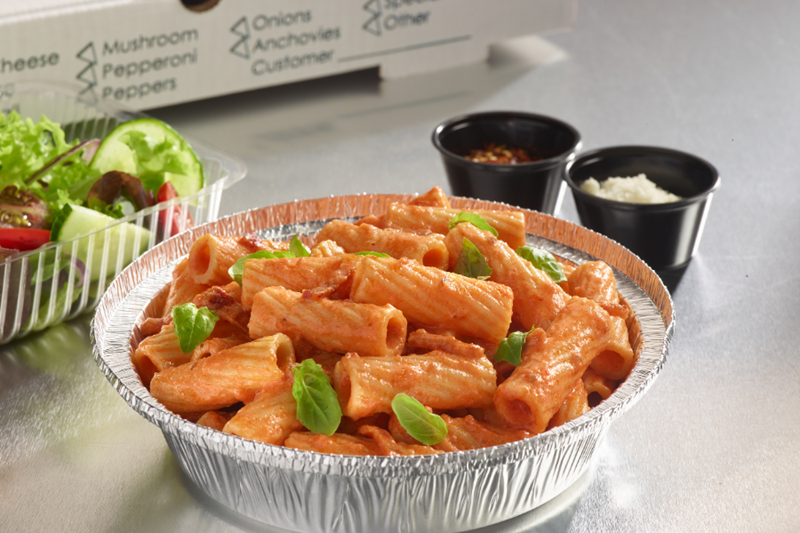 In challenging economic times, you need your best employees to stay on the job, keeping customers coming back for more pizza. Unfortunately, that’s a tough order when you consider the low employee retention rate in the restaurant business.
In challenging economic times, you need your best employees to stay on the job, keeping customers coming back for more pizza. Unfortunately, that’s a tough order when you consider the low employee retention rate in the restaurant business.
One way to keep your star employees at your pizzeria longer is to get them excited about their career future. This can be accomplished by establishing a mentor program that matches seasoned workers with promising new-hires.
“There’s more to running a restaurant than cooking food and serving guests. Nearly anyone can take an order, but to really excel in this industry, workers need to learn the finer points of customer service and running a business. Sometimes, the only way for an employee to learn that is to watch somebody else as part of a mentoring program,” says Matthew Kaufman of Q-Principle, an Atlanta, Georgia-based consulting company that specializes in customer service leadership.
“Mentoring programs help employees understand why and how things are done at your restaurant, and how it all translates to profitability,” says Gayle Gregory, a Portland, Oregon workplace consultant. “When employees have mentors, they gain a sense of ownership.
They’re more likely to show up on time, are ready to do good work, and are eager to be a part of a team that cares about the total customer experience.” Sound enticing? Here are some ways to effectively establish a mentoring program at your pizzeria.
First, set expectations before you start. Talk to your workers about what they hope to learn and accomplish with mentoring. “It’s important to establish employee needs upfront, so you can make sure you are both getting what you want out of the deal,” says Kaufman. “Hopefully, they’re gaining know-how and the ability to do their job, and you’re gaining a loyal employee who’s helping to make your pizzeria a better place.”
Communicate whether or not you’ll launch a formal, established mentoring program with set meeting times, or an informal, open-door type relationship. Either way can work, says Kaufman, as long as they match the personalities of everyone involved. “A mentor program should be in keeping with how the rest of the business operates. If you have a small restaurant with a very relaxed atmosphere, it’s probably best for the training program to be relaxed,” he says.
When setting expectations, consider the health of your company. If business is on an upswing, share that information. Employees may have the opportunity to work more hours and make more money if they learn the ropes in a mentoring program. But if sales are down and you think there’s a chance you might have to lay off some people in the near future, consider restricting the mentor program to only a few of your most promising workers.
Also, consider pairing top level talent with new-hires. Veteran/newhire pairings generally mean that the new worker watches the expert do job-related tasks. Then, the new worker begins to perform those tasks, gradually improving until they’re able to do the work independently.
To be successful, these pairings need buy-in at the highest levels, says Bruce Kolbinsky, senior vice president of franchise operations at Stevi B’s Pizza Buffet, an Atlanta-based chain with 26 franchisees and five corporate owned units. “The top person at each of our franchises spends a large amount of time with each new employee on their very first day. That way, the new employee has the benefit of feeling like they were actually trained, and not just thrown into the job,” says Kolbinsky. It makes a huge impression on a new-hire if the owner or high-level manager is willing to take the time to show them the ins and outs of business.
Next, maintain positive communication. James Higgins, owner of Puget Sound Pizza in Tacoma, Washington, is a firm believer in providing an encouraging atmosphere while training employees. “We try not to have an adversarial work environment,” he says. “To manage that, we have to keep communication levels high. Our pizzeria has a high retention rate, so it works.”
Higgins doesn’t implement a formal mentoring program, but he says that with good, informal communication and positive feedback, employees learn how to do their jobs effectively.
Also, don’t forget the back office. Make room in your mentoring program to educate high-performing, trustworthy individuals on back office instruction. “When you identify someone that you believe has the ability to lead, it’s up to you, as the manager, to groom that person for the next step,” says Kaufman. “That employee needs to know about your policies, your values and your approach to doing business.” As your restaurant grows, it’s just as important to have someone who can help you with vendor relationships, marketing and bookkeeping, as it is to have an excellent server.
Once you’ve done the necessary planning, start your mentoring program. At all points along the way, evaluate your results, says Gregory. Don’t just assume that your plans are working. Instead, take a look at hard numbers to see if you’re reaching your goals (see sidebar). Try to identify the impact of mentoring on your restaurant. If successful, your pizzeria could soon be enjoying longer-term employees and happier customers. ?
Goals Checklist
When establishing a mentoring program, it’s important to establish specific, measurable goals that you hope to achieve. Here’s a checklist of common objectives you might want to use for evaluating progress from your program’s start to its end.
? Fewer mistakes at the cash register. As mentors show employees specific tips for reducing counting errors, there should be fewer times when money comes up short.
? Fewer employee absences. As employees become more engaged with their mentors, they should be more committed to their job roles, potentially reducing the number of unnecessary absences.
? Fewer customer satisfaction complaints. As employees observe how seasoned colleagues offer customer service, they should be able to improve their own interactions with customers, hopefully decreasing the number of overall complaints.
? Increased number of employees ready for supervisory role. This is subjective, but it’s still an important indicator of the program’s success.
Margarette Burnette covers small business, finance and health for a variety of print and online publications. She is based in the Atlanta, Georgia, area.



